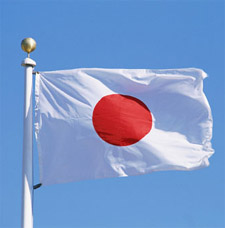Feb 22, 2026
Feb 22, 2026
 While the United States, Russia, China and Europe may figure more prominently in the global political focus, it is Japan that figures more prominently in Asia as a great and unique nation. This not only arises from its economic superpower status and a staunch ally of the United States but also from a number of historical and political factors extending back to the third quarter of the 19th Century.
While the United States, Russia, China and Europe may figure more prominently in the global political focus, it is Japan that figures more prominently in Asia as a great and unique nation. This not only arises from its economic superpower status and a staunch ally of the United States but also from a number of historical and political factors extending back to the third quarter of the 19th Century.
What is it that makes Japan a great and unique nation? Japan's strengths lie in her strategic culture and her social culture. Japan has an ancient civilization and a strategic and political culture which enabled it not to be colonized in the heyday of European colonialism when its more powerful and larger neighbor i.e. China was carved out into pieces by European nations . Japan's uniqueness lies in her fierce respect and adherence to its traditions, an unflinching pride in their nation and an unparalleled dedication to hard work and honesty of purpose.
All of these have played a prominent part in the rise of Japan at various stages since the Nineteenth Century, even when Japan was reduced to ashes in 1945 by the Americans as a result of atomic bombing. Some important milestones in Japan's history need to be recounted:
Japan remained closed to European intrusion and influence till the middle of the 19th Century even though the first attempts were made by the Europeans in the 16th Century.
Japan first opened itself to the outside world in the middle of the 19th Century when Admiral Perry from the United States sailed into the Yokohama Bay with a number of ships and established contact.
In 1867, the Meiji Restoration took place led by a group of younger group of Samurai who restored the Japanese Emperor's power and authority and moved the capital to Tokyo from Kyoto.
The Meiji Restoration was aimed not only to restore the Emperor but also to place Japan on a fast track political and economic path to integrate itself with the existing global order on an equal footing.
Japan under this highly nationalistic young leadership went in for rapid industrialization and building her armed forces on Western lines. Young Japanese were sent the world over to study the countries best in the world in different fields. For study of industry and business practices they went to the United States. The new Japanese Imperial Army was modeled on the Prussian lines, the best in those times. The Japanese Imperial Navy was modeled on the British Navy lines. By the last decade of the 19th Century Japan was ready to sit at the Global High Table of colonial powers.
This was grudgingly conceded by the Western Powers after Japan had annexed Formosa and Korea and in the interval inflicted a crushing defeat on the Imperial Russian Navy at the Battle of Tsushima which till today is studied by Navies all over the world. In 1919 Japan sat as an equal power with the victorious Western Powers at the Treaty of Versailles to decide on the spoils of the victory of the First World War. Japan acquired all German colonies in the Pacific as her share. The rest is contemporary history i.e. the run-up to the Second World War that it fought single handedly so fiercely that the United States realized that Japan could not be defeated for another couple of years and a cost of a million American lives . The atomic bombing was the only option left for USA to end the war.
Japan emerges as a great and unique nation as the historical retrospective below would indicate:
Japan is the only Asian country which the European Powers could not colonize in the hey day of Western imperialism.
Within 25 years of the Meiji Restoration it sat as the Asian colonial power at the Treaty of Versailles on an equal footing with the Western Powers.
Japan is the only country which had inflicted military defeats at one time or the other on the major global powers of today, namely USA, Russia and China.
Within 25-30 years of its being reduced to ashes by US atomic bombings Japan once again with its traditional resilience and dedication rose like a phoenix from the ashes to become an economic superpower.
Today as China tries to overshadow and predominate the East Asian region it is only Japan which stands in the path of a total Chinese hegemony of the region. Despite its small size and lack of natural resources Japan has not only emerged as an economic superpower but a key global power which would have been now sitting as a Permanent Member of the UN Security Council but for the veto of China which fears it would erode its salience.
27-Aug-2006
More by : Dr. Subhash Kapila